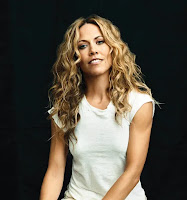The Dossier Joy Division was a very young but innovative British New Wave band that was on the verge of making it in America when their lead singer, Ian Curtis, hanged himself at the age of 23. The remaining members regrouped as New Order and made good on the promise of Joy Division by releasing some of the best dance music of the 1980s. They placed only two singles in the U.S Top Forty (“True Faith” and “Regret” but not, surprisingly, “Bizarre Love Triangle”) but a whopping 14 tracks in the Top Ten of the U.S. Dance Club chart. Robert Christgau called them "the greatest disco band of the 1980s except for Chic, and these guys outlasted Chic."
Why I Should
Vote for Them They were distinctive, influential, and stormingly good. While
synthesizers were dominating dance music in the 1980s, New Order stripped things
down to primarily bass and guitar, with the keyboards there for color. It was
as if Booker T and the MGs had moved to Manchester. All four members had a
strong melodic sense – yes, somehow even drummer Stephen Morris – which made
their songs multilayered and dense while remaining gorgeous and danceable.
I don’t
really care about England, but New Order dominated the 1980s there, running 17
singles up to the No. 1 spot on the U.K.’s indie chart. In fact, they had 20
consecutive singles reach the top three on that chart. There were a lot of
great post-New Wave dance one-shots in the 1980s -- “If You Leave,” “A Little Respect” -- but New Order put out song after song at that
level.
Don’t forget
we are including Joy Division here too. They released two hugely influential
albums and a handful of singles in their
brief career and landed “Love Will Tear Us Apart” in a fairly high slot on
every iteration of the Rolling Stone Greatest Singles of All Time list, despite
its barely being heard in America. One wonders whether Joy Division would have
had as much impact as New Order; Ian Curtis had a much more distinctive voice
than Bernard Sumner, and was a better lyricist, so maybe so. But Sumner very
effectively used his vocals as just another element of the mix, and he deserves
credit for that.
Why I
Shouldn’t Vote for Them New Order’s direct impact on American shores was fairly
minimal. I wish they had more hit singles, not just because that would make it
easier to vote for them, but because they’re great to hear on the radio.
Also, they
did that nerdy thing where the titles of their songs generally did not appear
in the lyrics. I suppose Led Zeppelin pioneered that, but that’s no reason to
continue doing it. “Bizarre Love Triangle” has a perfectly memorable chorus from which
you could choose a title phrase – but no, we’re stuck with “Bizarre Love Triangle.”
I still have to remind myself which one is “Blue Monday.”
The Verdict The best thing about writing this essay was that I got to listen to New Order
all weekend. I’ve been listening to their music since the 1980s, and I still
hear new textures and melodies in there. The second best thing about writing
this essay is that I get to say that I’m voting for New Order.











